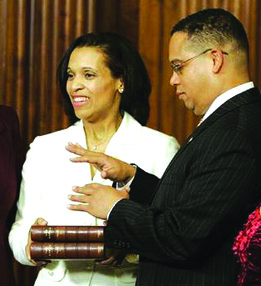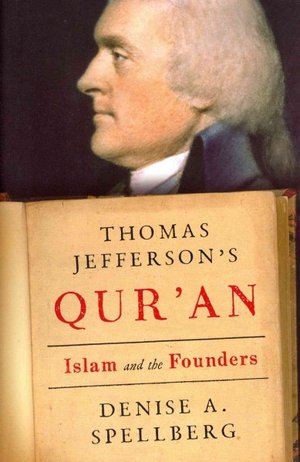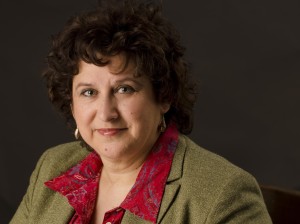
October 18-2013
President Thomas Jefferson had a large personal library, which he gave to the US government and which became the basis for the Library of Congress, which is the national library of the United States despite its name.
One of the books in the library is a Qoran that Jefferson bought in 1765.
In a new book, Thomas Jefferson’s Qur’an: Islam and the Founders, author Denise Spellberg draws parallels between the beliefs of Jefferson and religious tolerance in the United States today. She says the Qoran informed Jefferson’s ideas about plurality and religious freedom in the founding of America.
The Jefferson Qoran was little noted until a few years ago when Keith Ellison, the first Muslim elected to the US Congress, used it when he swore his oath as a Member of Congress.

Spellberg recently was interviewed by National Public Radio (NPR) about her book and about Islam in America.
She said, “I think that there is anxiety about what Muslims believe, largely because people [in the United States] don’t understand Islam very well. I think that was also true in the 18th Century. It strikes me that Jefferson was theorizing for a future that included Muslims — not in spite of their religion, but because of it and because of his notion of universal civil rights.”
She said Jefferson ordered this Qoran in 1765, eleven years before he wrote the Declaration of Independence. He was a law student at the time, and he had the book shipped from England to Williamsburg, Virginia, an expensive proposition.
“Europeans—and Americans after them, in this period—tended to be quite hostile toward Islam. And yet Jefferson was curious about the religion and law of Muslims, and that’s probably why he bought the Qoran,” Spellberg said.

“Jefferson was unique in many ways. He criticized Islam as he did Christianity and Judaism. He talked about Islam as a religion that repressed scientific inquiry — a strange idea he got from Voltaire that wasn’t right — but … was able to separate his principles about Muslim religious liberty and civil rights from these inherited European prejudices about Islam.
“He did the same thing when arguing for the inclusion of Catholics and Jews, actually. He had not very good things to say about either Catholicism or Judaism, but he insisted that these individual practitioners should have equal civil rights,” Spellberg said.
Jefferson “resisted the notion, for example, that Catholics were a threat to the United States because of their allegiance to the pope as a foreign power. There were many Protestants who would have disagreed with him about Catholics, and many who would have disagreed with him about Muslims.
“They [Muslims] were the outsiders, whose inclusion represented the furthest reach of toleration and rights. So for Jefferson and others — and he was not alone in this, although it was a minority — for him to include Muslims meant to include everyone of every faith: Jews, Catholics and all others. And to exclude Muslims meant that there would be no universal principle of civil rights for all believers in America,” Spellberg said.
She also says that there were Muslims in the American colonies even before the revolution. They were slaves brought from Africa. And George Washington owned at least two of them.
“We don’t know how many were the first American Muslims,” Spellberg said. “We think they numbered in the thousands or tens of thousands. And it’s not impossible that Jefferson actually owned Muslim slaves from Africa, but there’s no direct evidence of it. That’s not the case for George Washington.”
She said that Washington’s list of slaves carried the names of “Fatimer” and “Little Fatimer.”
She said, “Despite being spelled with an ‘er’ at the end, this is clearly the name of the prophet’s daughter, Fatima. So there were Muslim women working on Washington’s plantation at the same time he was inviting people of all faiths to a protected religious liberty and rights in the United States.”
Spellberg, 55, is an associate professor of history and Middle Eastern Studies at the University of Texas at Austin. Spellberg holds a BA from Smith College and a PhD from Columbia University.
